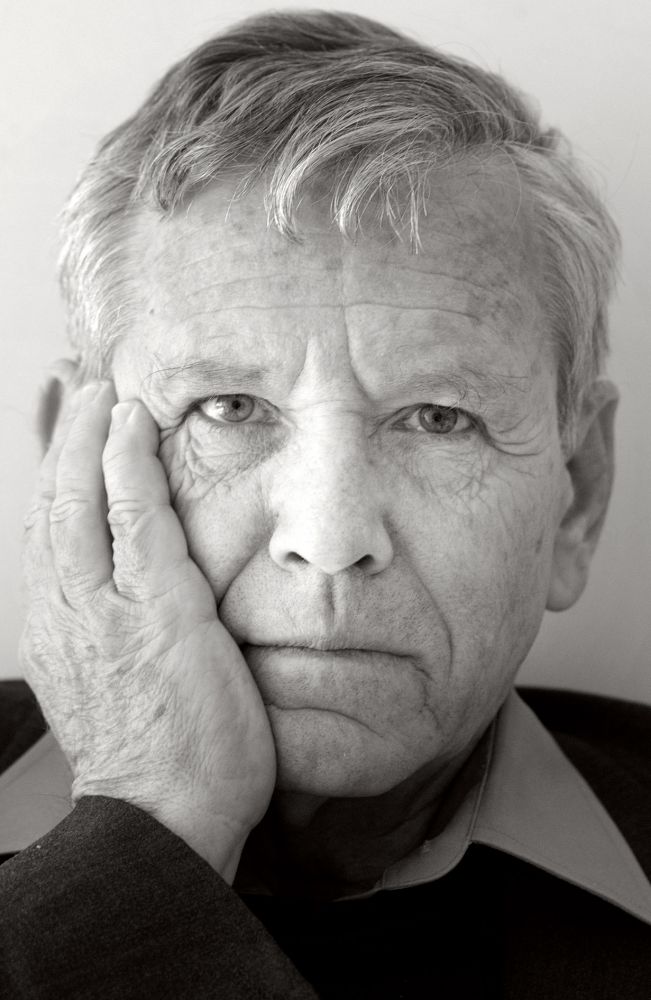- News
- Events
- Oneg Shabbat
- Collections
- Research
- Exhibitions
- Education
- Publishing Department
- Genealogy
- About the Institute
- Bookstore


Undoubtedly, one of his most interesting books is autobiographical „A Tale of Love and Darkness” written in 2001 (Polish edition 2005). The film version was directed by Natalie Portman, who also played Oz’s mother. The book, translated into many languages, originally wasn’t intended for publishing – it was written for family and friends, with freedom and courage, revealing painful events in the life of the writer and his family. Protagonists resembling his mother were appearing in his earlier books as well; she is the centre of his story.
A brave idea to apply a female narrator in his first novel, „My Michael”, led to twofold reactions from women readers: either admiration — „How did he do it?”, or outrage — „How come?!”. He said once that the subject of his books is the longest journey in the world, from one human being to another. It is a journey riddled with adventures, some get lost, they forget, where they’re heading, or even who they are. But this is the most important journey, and it’s worth the effort. He fell in love with a colleague from the kibbutz in which he had spent nearly 30 years. They married and had three children; his wife Nili was always the first reviewer of his books and had always provided support.
Fascination with women is clear in Oz’s works. Perhaps it’s a heritage from his grandfather Aleksander Klausner, who had been writing poetry in his native Russian through his entire life (born in Odessa, he later moved to Vilnius). The grandfather is one of the most colorful characters portrayed in „A Tale of Love and Darkness”. Unfortunately, Natalie Portman had to select themes and decided to omit grandpa Aleksander in favour of mother, Fania. When the film was shown in Polish cinemas, we were discussing it as well as the book at the JHI Readers’ Club. Later we focussed on „Judas”, Oz’s last work, in which he returns to Jerusalem of his university years. It’s a dark but hopeful story.
His stories were usually set in Jerusalem and the kibbutz. In his youth, he had discovered that one can write about ordinary people, seemingly unimportant places, that a novel doesn’t have to be set in Paris or New York in order to be interesting.
Amos Oz’s parents, Jehuda Arie Klausner and Fania nee Mussman had moved to Israel in the 1930s. The Klausners came from Vilnius, where Arie was studying; the Mussmans came from Rivne, and Fania graduated in Prague. Their son said that they considered themselves Europeans. They could read in several languages, father knew many of them and kept comparing words in conversations. They didn’t feel at home in an oriental and provincial country.
Father’s role model was always his uncle Józef Klausner, a scholar and great moral authority. Thanks to him, they got to know the majority of writers and academics in Jerusalem. The mother, spending her life in a tiny flat full of books, occassionally giving private lessons, felt unfilfilled. Aliyah had saved them, but at the same time, they had lost many loved ones in the Holocaust. All of this perhaps contributed to Fania’s depression and eventual suicide.
They tried to bring up their son as an Israeli, free of their fears and complexes – hence they didn’t teach him languages other than Hebrew and English. He wanted to be a sabra, a brave, healthy lad, not a gaunt intellectual. Two years after his mother died, he decided to move to a kibbutz. Soon it had turned out that it’s not that easy to refuse one’s literary talent, even if you try. The kibbutz council sent him to Jerusalem to study philosophy and literature. When he came back, he worked as a tractor operator, but he was ordered to spend one day a week on writing only. In mid-1980s, he moved to the edge of desert in Arad. He worked as a literature lecturer at the University of Beersheba and published many articles in the press. He was an active supporter of reconciliation between Israel and Palestine, founding an organization Shalom Achshav (Peace Now), thus becoming a traitor of the nation for many. In interviews, he had always emphasised the voice he gives to various people, even those he doesn’t agree with. His non-fiction book, „In the Land of Israel”, is an example of his stance. He has also always encouraged curiosity in people, saying that people curious of the world are simply better at whatever they do.
He was a role model for many readers and younger writers, who he had actively supported. We have lost an interesting writer — and human being.